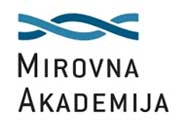Post-Yugoslav Peace Academy
The Post-Yugoslav Peace Academy (PYPA) program was created in 2007 as a result of shared experience-based insights from four organizations working in the field of reconciliation and peacebuilding in the region: Mennonite Central Committee, Sarajevo; Centre for Non-violent Action, Sarajevo/Belgrade; Nansen Dialogue Center, Sarajevo; and TERCA, Sarajevo.
PYPA was conceived to address a number of challenges which practitioners in the field have been facing throughout the region:
- education for peacebuilding practitioners is insufficient in providing practitioners with theoretical foundations and reflexive tools;
- immense theoretical production in the field has been circulating in academic circles and has not been communicated to practitioners;
- and cooperation among practitioners within countries and in the region is very limited and mainly donor-driven.
In September 2010, to ensure the long-term sustainability of the PYPA, the Peace Academy Foundation was established as a separate and legally-registered organization. From this date, the PYPA has been one the main PAF's activities, providing education on peacebuilding to persons from across the former Yugoslavia who are active in the fields of peacebuilding, dealing with the past, and human rights' protection. This event is tailored for activists, students, researchers, theoreticians, journalists and all others whose focus is peace work.
Our basic intention is to contribute to the advancement of peacebuilding practices and theory in the Post-Yugoslav Countries and offer those who deal with peacebuilding the opportunity to:
- Critically evaluate and reflect on practices and models applied to date in the peacebuilding field regarding the region of former Yugoslavia and beyond;
- Become introduced to new theories and practices of peacebuilding from different parts of the world.
PYPA aims to empower the participants with advanced knowledge and skills for strategic and transformative work, both practical and theoretical, in the field of peacebuilding.
PAF has organized to date four PYPA's for more than 210 peacebuilding actors, NGO activists, theoreticians, journalists and others from the region and beyond. During those four summer schools, 12 courses with unique curricula on peacebuilding that combine activist and academic approaches in peacebuilding have been delivered by 14 renowned instructors from the region and beyond. As a product of the four PYMA's, more than 100 essays have been written by participants and published as a final product of the summer school. These publications hvae enriched locally-produced peacebuilding literature in the region.

